Policing Leadership Academy

The Crime Lab launched its Policing Leadership Academy (PLA) in May 2023. This first-of-its-kind education trains America’s policing leaders working in some of our most violent neighborhoods.

Comedy and crime fighting join forces
Claudia Lauer for The AP highlights the PLA’s partnership with The Second City that uses improv exercises to help police leaders build deeper communication skills and strengthen relationships.
About the PLA
The PLA is a violence reduction initiative that aims to prevent violent crime, support officers, and improve fairness and effectiveness in policing. We do this by developing better police management practices nationwide and in select cities globally, with a focus on many of America’s highest-violence geographies.
The academy, which is being rigorously evaluated to measure its effectiveness, addresses a persistent training gap by providing a five-month, robust management and leadership education to police at the commander level and at no cost to the department.
Focus on Police Commanders
Investing in law enforcement management education can transform public safety in an entire city simply by training a few handfuls of key people.
Currently, there are no national standards, curriculum, or best practices for training and supporting police commanders/captains/majors – the rank that oversee police precincts and station houses. Police commanders don’t directly supervise patrol officers – they supervise the supervisors and can exert much greater influence over local patrol behavior than department leadership. The PLA is the only police management and leadership education program in the country solely focused on this critical rank of police leader.
The PLA builds on prior research from the Crime Lab showing that changes in police department management can drive reductions in both violent crime rates and police use of force. The five-month curriculum provides hands-on training in datadriven management, violence reduction, and community trust.
Years Active
2022 – present
Topics
Project Leads
Roseanna Ander
Founding Executive Director

Kenneth E. Corey
Executive Director, Policing Leadership Academy

Erin Kuller
Program Director, Policing Leadership Academy

Sandy Jo MacArthur
Director of Curriculum Design, Policing Leadership Academy

Luann Pannell
Director of Instructional Design and Academic Innovation, Policing Leadership Academy

Research Principal Investigators
Anthony Braga
Jerry Lee Professor of Criminology, University of Pennsylvania
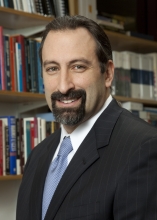
Aaron Chalfin
Associate Professor of Criminology, University of Pennsylvania
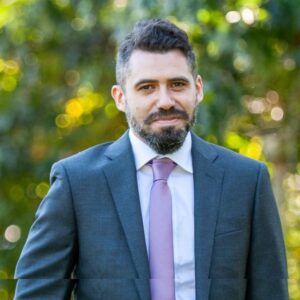
Dylan Fitzpatrick
Research Director

Max Kapustin
Assistant Professor, Cornell University
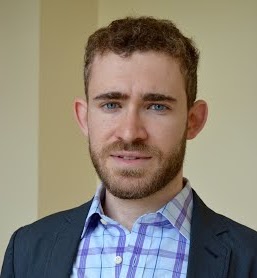
Kailey White
Portfolio Director of Qualitative Research

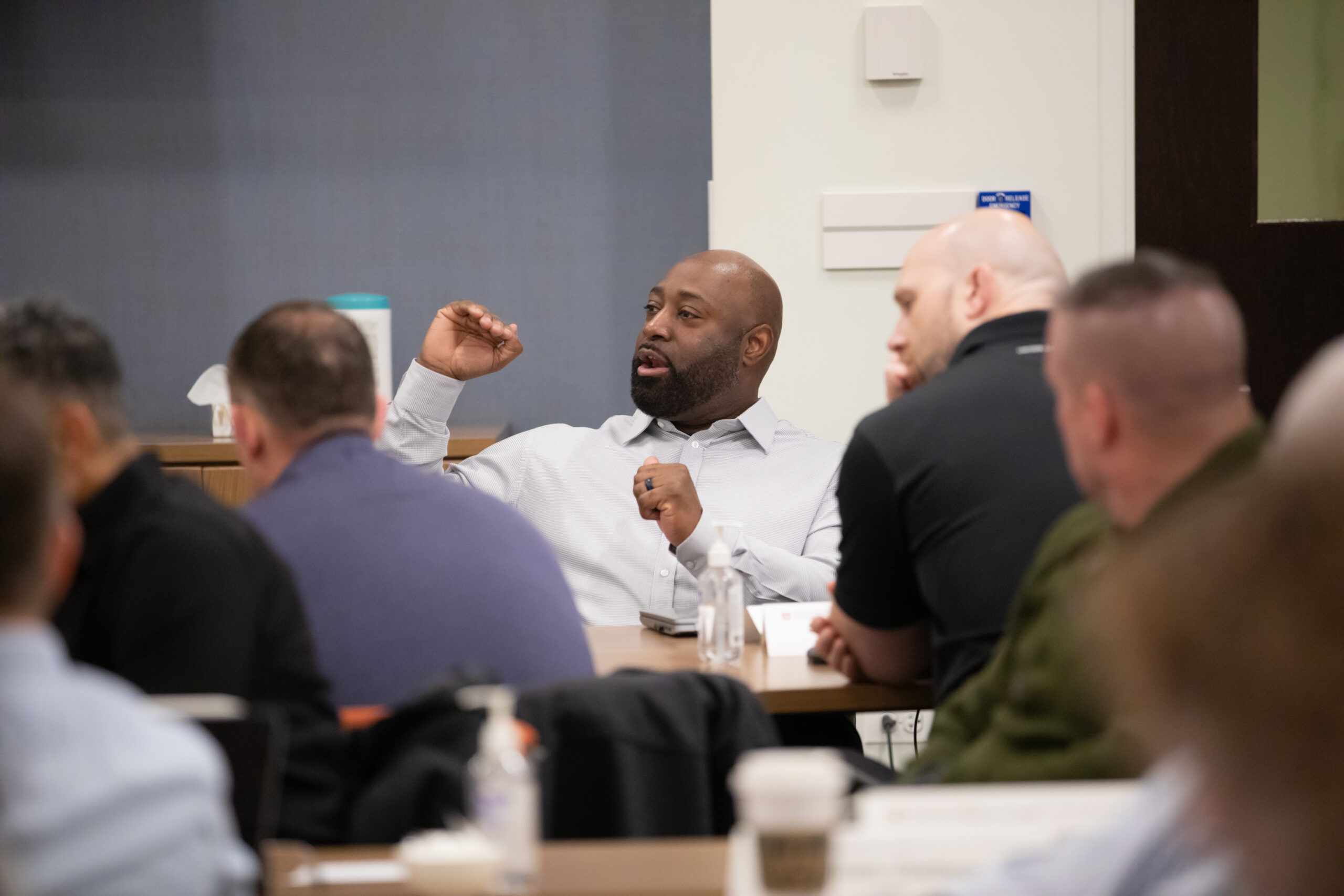
Capstone
The Policing Leadership Academy’s five-month curriculum culminates in a community capstone project to turn lessons learned into saving lives.
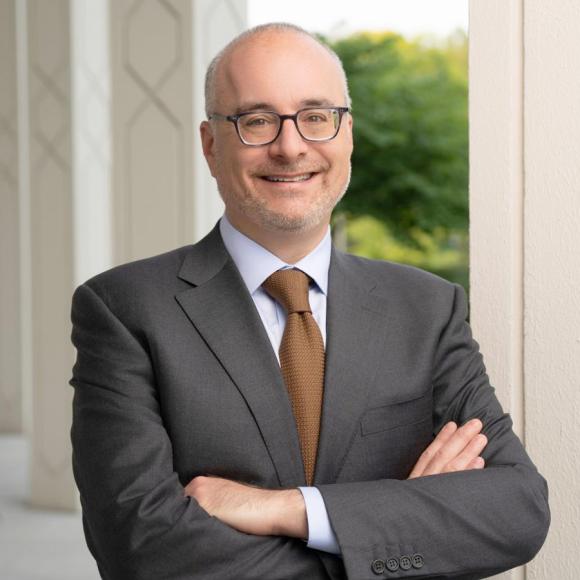
For the Harris School, this is what we dream of: upholding the highest rigors of science, in service of real public policy issues, to have an opportunity to be of service to people working in the public interest, doing the most important work for public safety in our society. It is an honor and a privilege and the thing we exist for.
Dean, Harris School of Public Policy, University of Chicago

The University of Chicago Crime Lab is proud to be at the forefront of innovation in policing and community safety. We believe that education and leadership development are crucial elements in addressing the complex challenges our cities face. The graduates of the Policing Leadership Academy are leaving well-equipped to lead their departments towards more effective, accountable, and community-centered policing.
Founding Executive Director
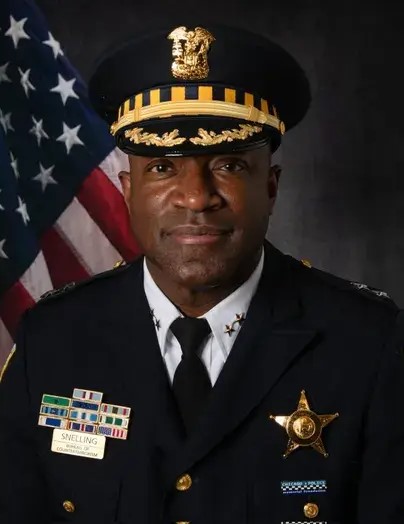
The Policing Leadership Academy’s commitment to equipping police leaders with the skills and knowledge needed to navigate the intricate landscape of modern policing is commendable. It is vital that we empower law enforcement professionals with the tools and insights necessary to build safer communities.
Superintendent, Chicago Police Department
One of my biggest takeaways from the PLA is the practical application. The PLA helps me bring learning and tools back to my district and my city and put them into practice.
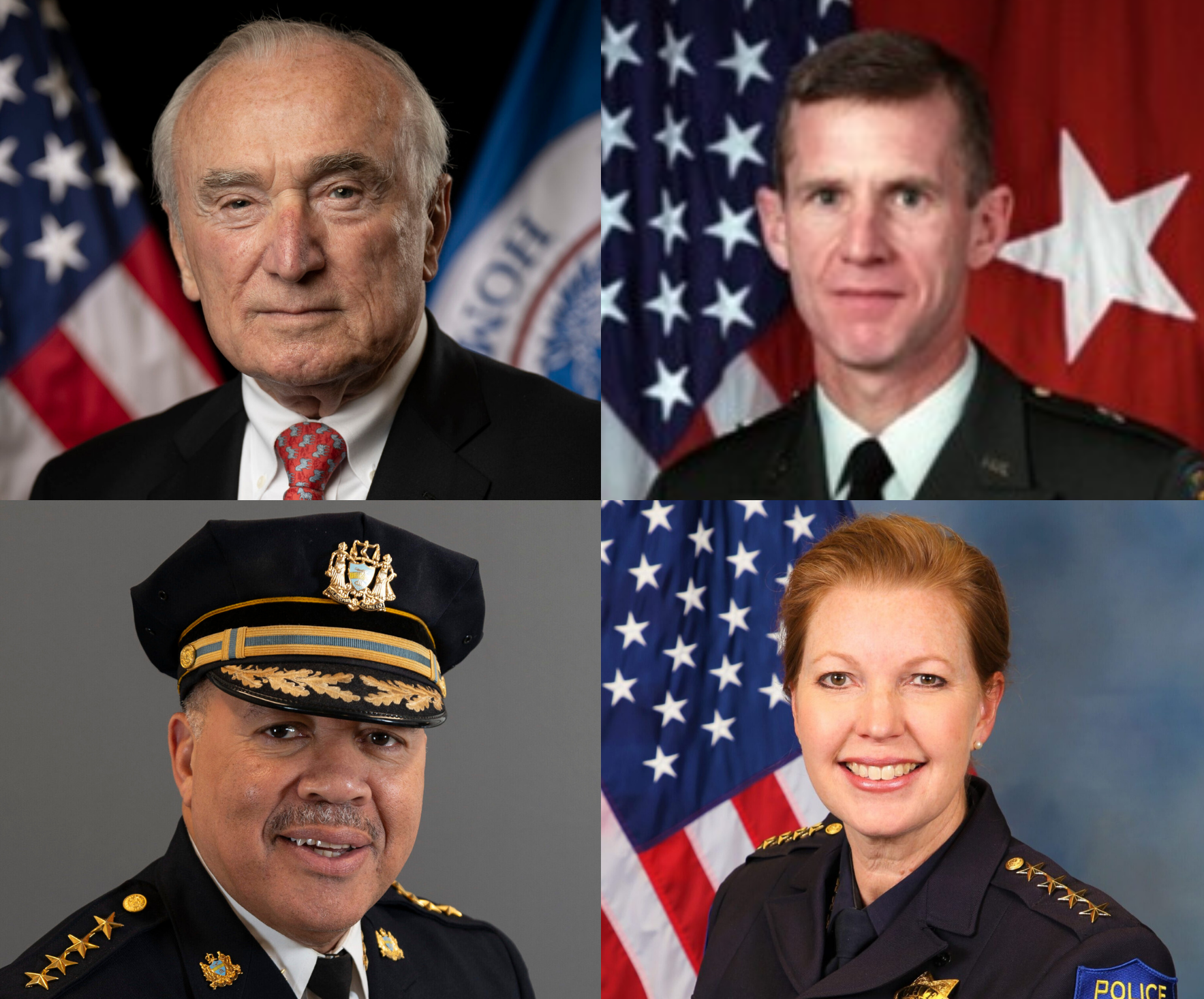
PLA Advisory and Research Committees
The Policing Leadership Academy Advisory Committee includes former generals, police chiefs, government officials, attorneys, and physicians. This committee serves as an advisory body to the Crime Lab and Policing Leadership Academy staff, provide mentorship to participants, and serve as ambassadors for the Academy to police agencies, policymakers, and opinion leaders.
The Policing Leadership Academy Research Advisory Committee is made up of academics with subject matter expertise. The committee serves as an advisory body for the quantitative and qualitative research components of the Policing Leadership Academy.
The Curriculum
The PLA is led by policing experts who offer a five-month multidisciplinary curriculum with students in residence in Chicago for one week each month. The PLA builds capacity in reducing violent crime, building community trust, strategic leadership, and data-driven management. Participants also complete a capstone project, with the support of a dedicated capstone coach, focused on solving an entrenched issue in their home districts.
Where We’re Working
The first six cohorts include 201 police leaders from across the U.S. and from select cities globally.
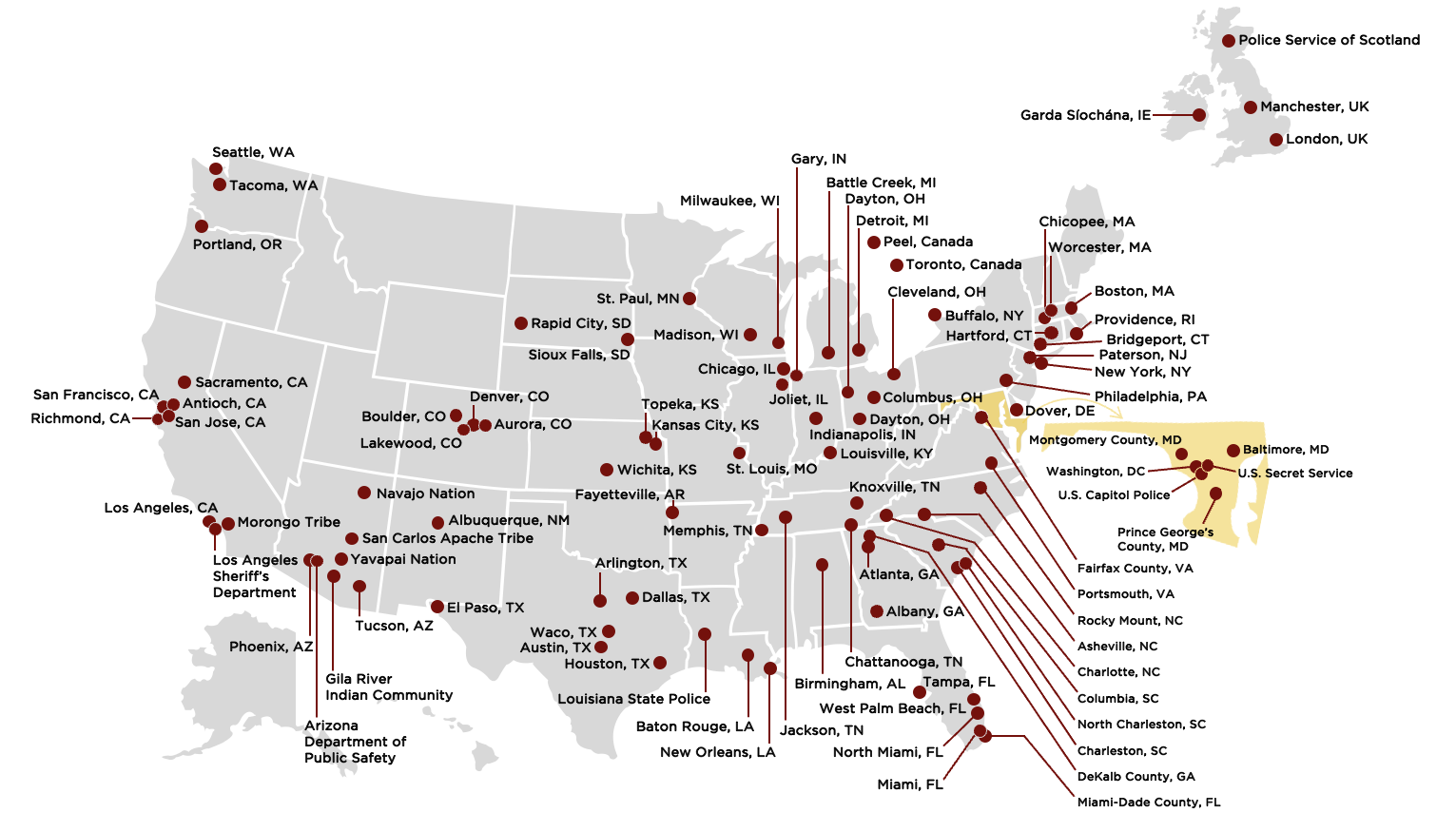
Ensuring What We’re Teaching Works
To test the PLA’s effectiveness, researchers at the University of Chicago Crime Lab, the University of Pennsylvania, and Cornell University’s Jeb E. Brooks School of Public Policy are conducting a multi-city, randomized controlled trial to measure the impact of investing in police commanders’ leadership and management skills. The evidence generated by this work will inform policing leadership and educational initiatives for generations to come.

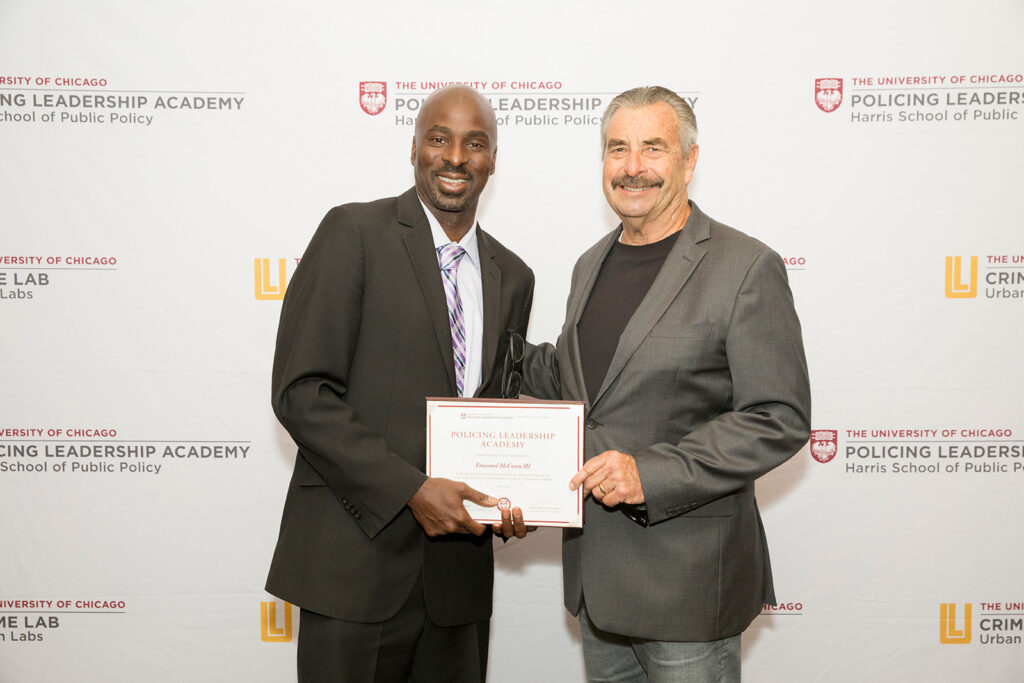
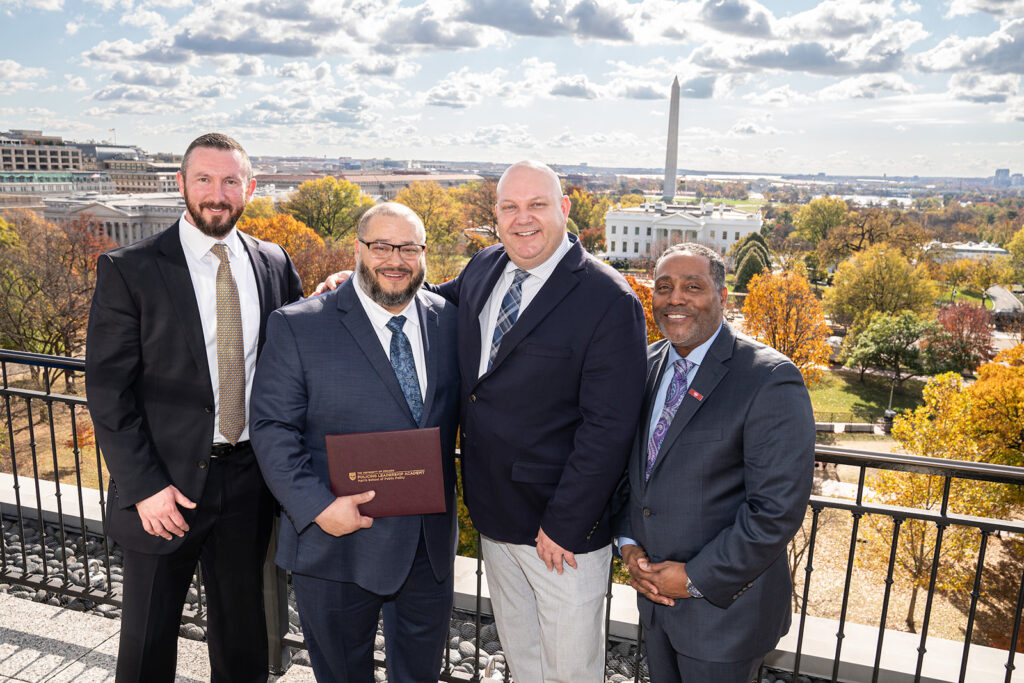
Latest Updates
Former NYPD Chief of Department Kenneth E. Corey Named Executive Director of the Policing Leadership Academy
CHICAGO, IL — The University of Chicago Crime Lab today announced that Kenneth E. Corey has been appointed Executive Director of its Policing Leadership Academy (PLA), a first-of-its-kind executive education program designed to help police leaders reduce gun violence and build trust in the communities they serve.

Comedy and crime fighting join forces for police learning leadership skills
Claudia Lauer for The Associated Press highlights the Policing Leadership Academy’s partnership with The Second City that uses improv exercises to help police leaders build deeper communication skills and meet their goals of increasing community engagement and creating safer cities.

Do the Police Have a Management Problem?
Crime Lab Pritzker Director Dr. Jens Ludwig was featured on the latest Freakonomics Radio episode with Policing Leadership Academy participants and leaders. In this episode, Jens and Freakonomics Radio host Stephen J. Dubner discussed our Policing Leadership Academy and the importance of professionalizing police leadership to effectively reduce gun violence.


Video: Creating Safer Communities by Improving Policing
Griffin Catalyst highlights the Policing Leadership Academy, a new national leadership program that brings together rising police leaders from around the country for five months of advanced, intensive training in management best practices, leveraging data and technology and building community trust—all with the ultimate goal of creating safer, more vibrant communities.

Video: Reducing Violence and Improving Policing
This video offers a glimpse into the Policing Leadership Academy, a violence reduction initiative designed to prevent violent crime, support officers, and improve fairness and effectiveness in policing throughout some of the country’s most violent neighborhoods.
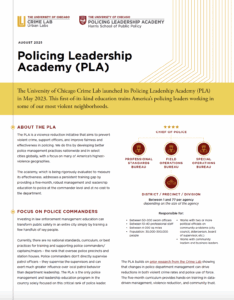
Policing Leadership Academy (PLA) Overview
Read an overview of the Policing Leadership Academy (PLA), a first of-its-kind program launched in May 2023 to train America’s policing leaders working in some of our most violent neighborhoods.
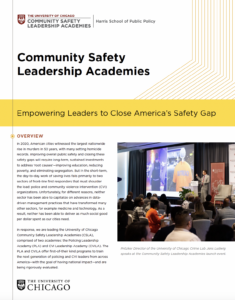
Community Safety Leadership Academies: Brief
Learn more about our Community Safety Leadership Academies.
